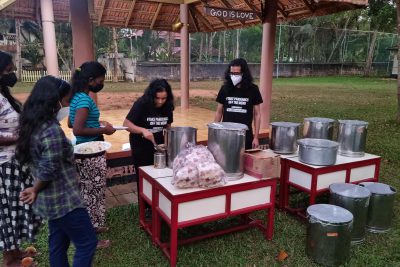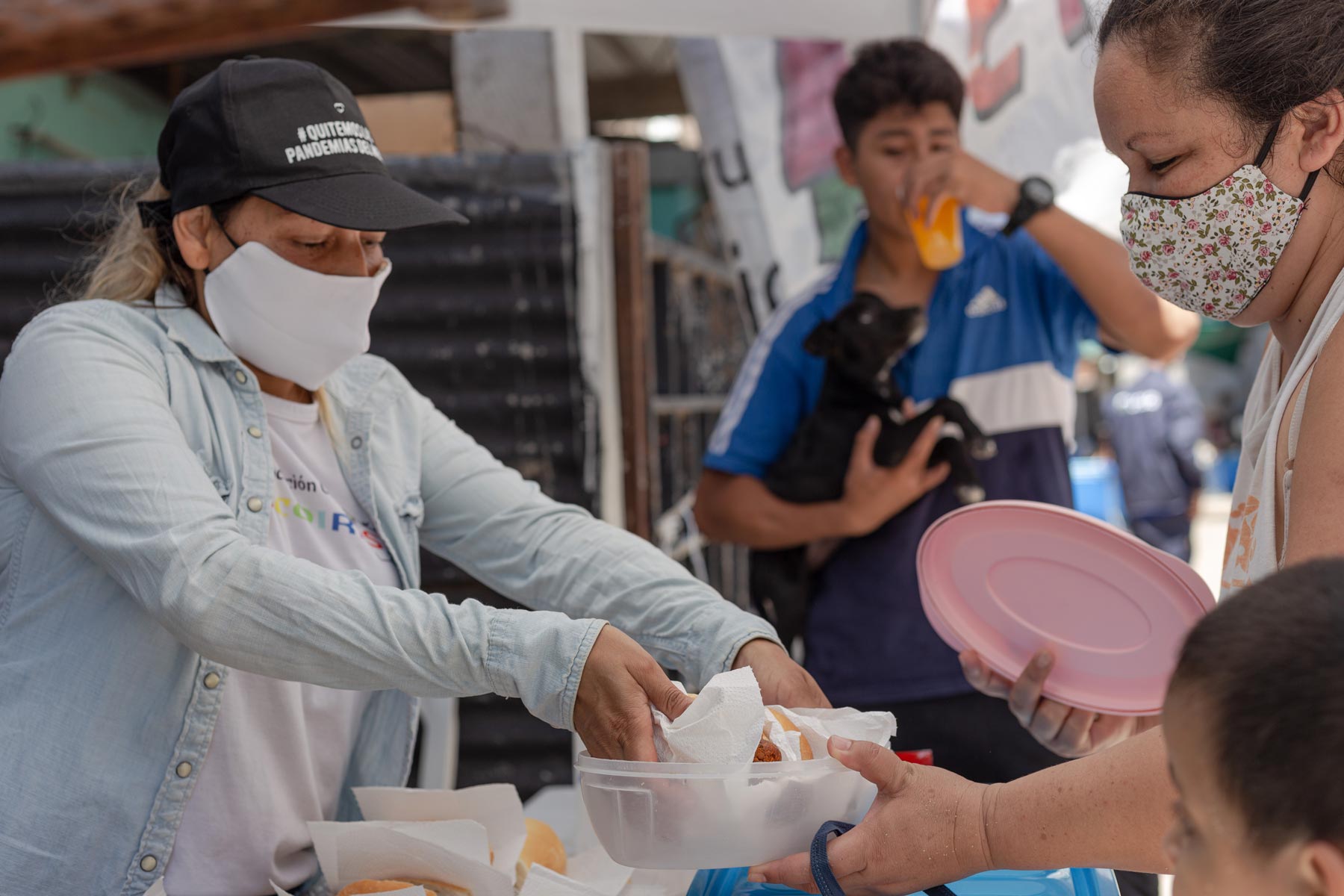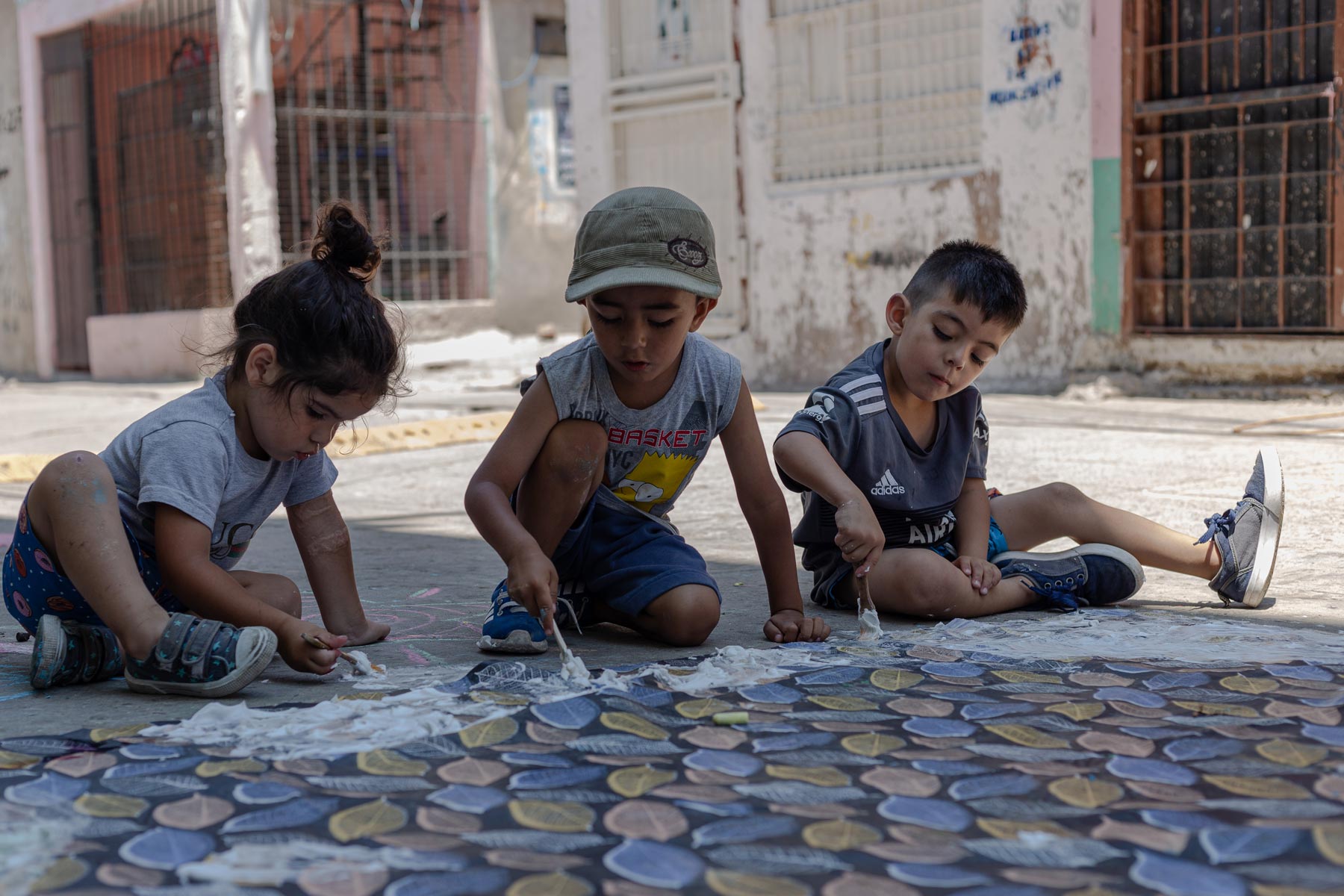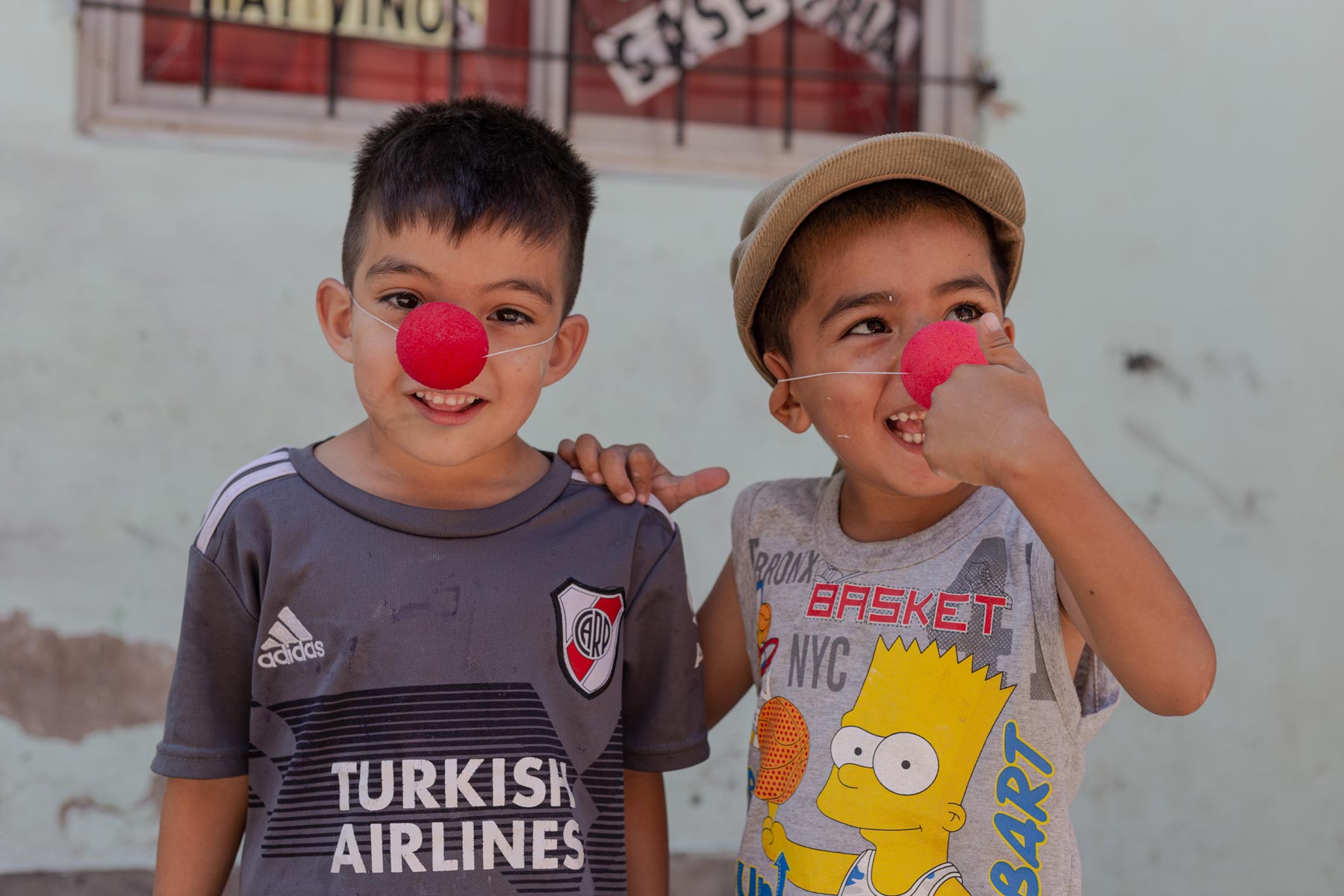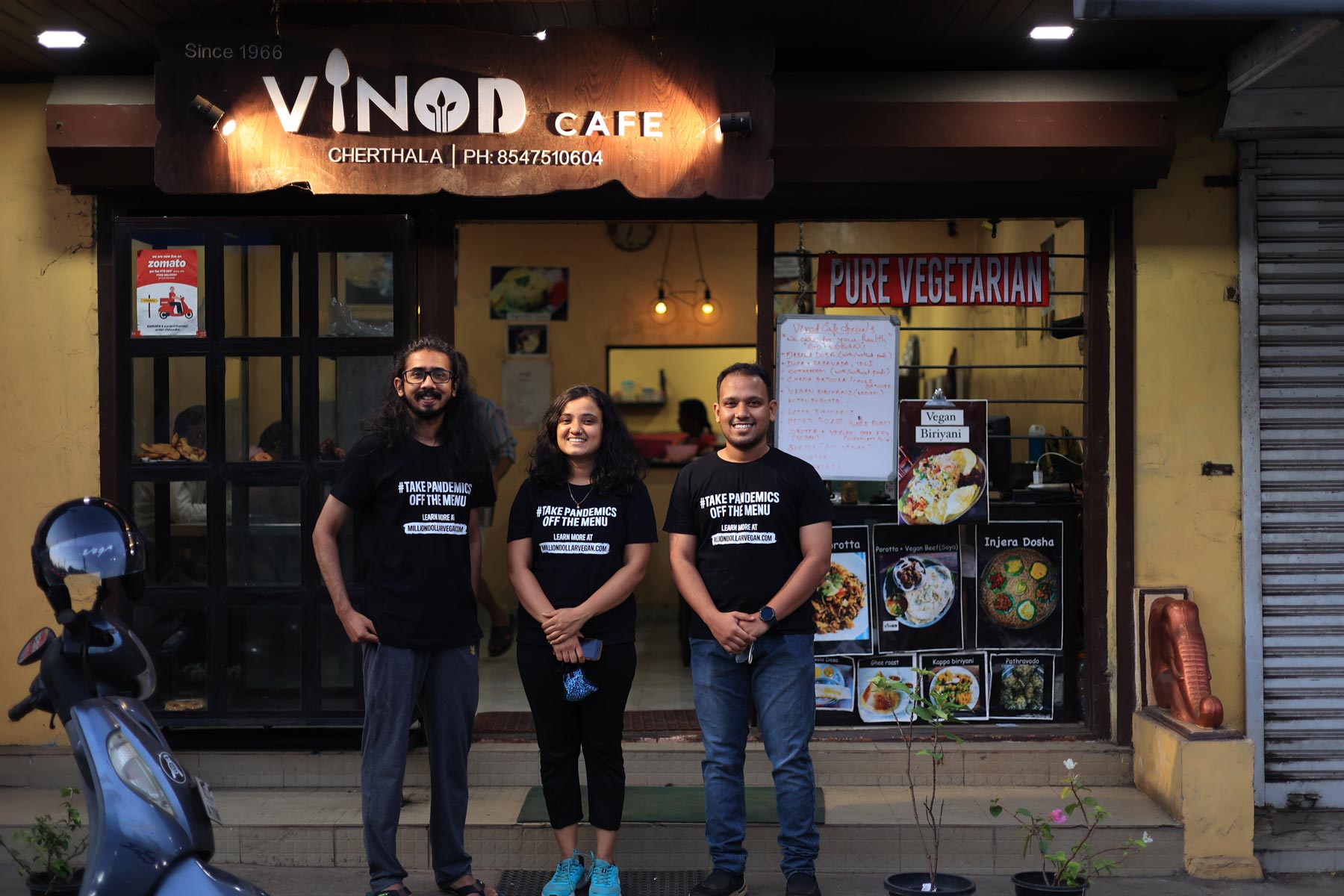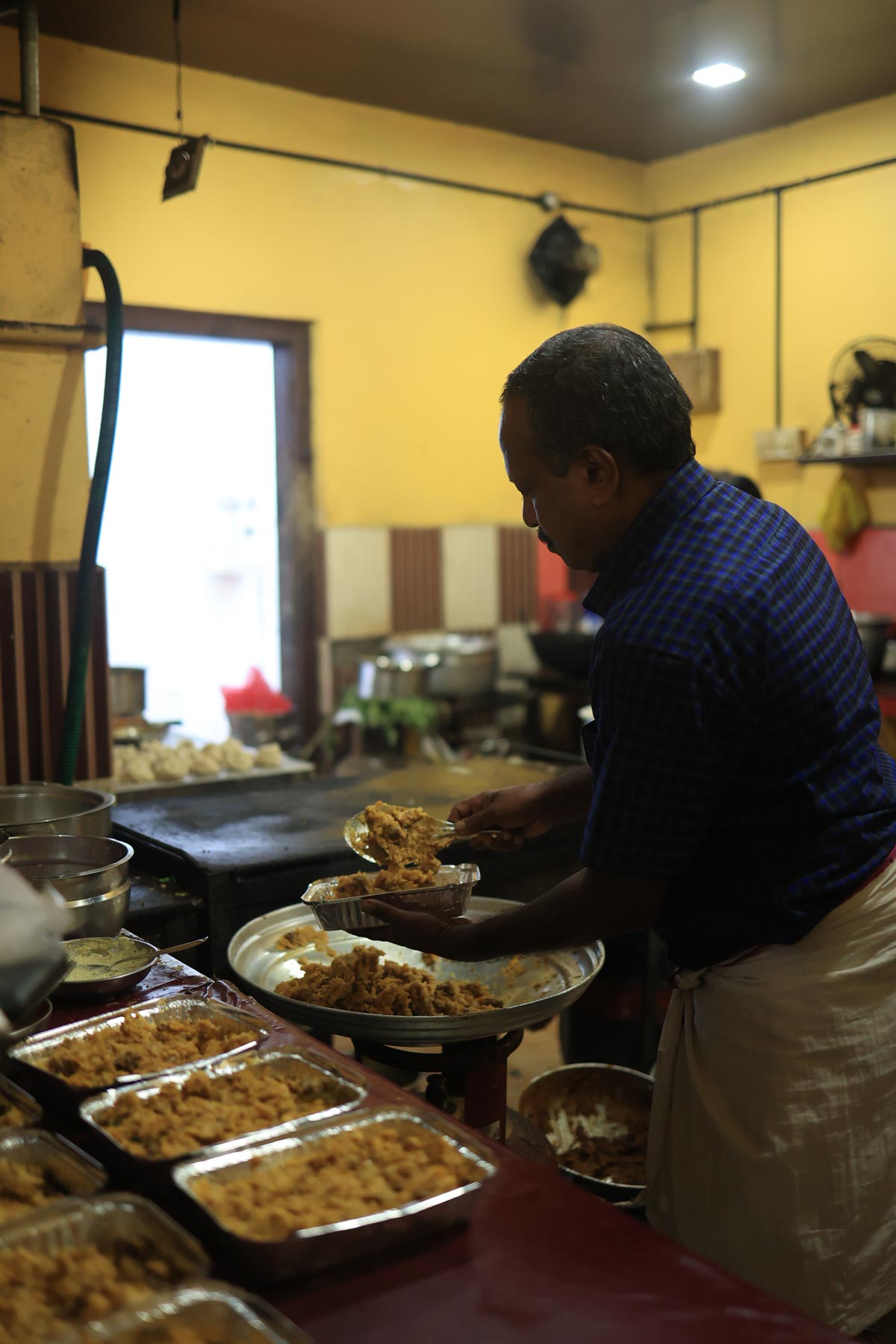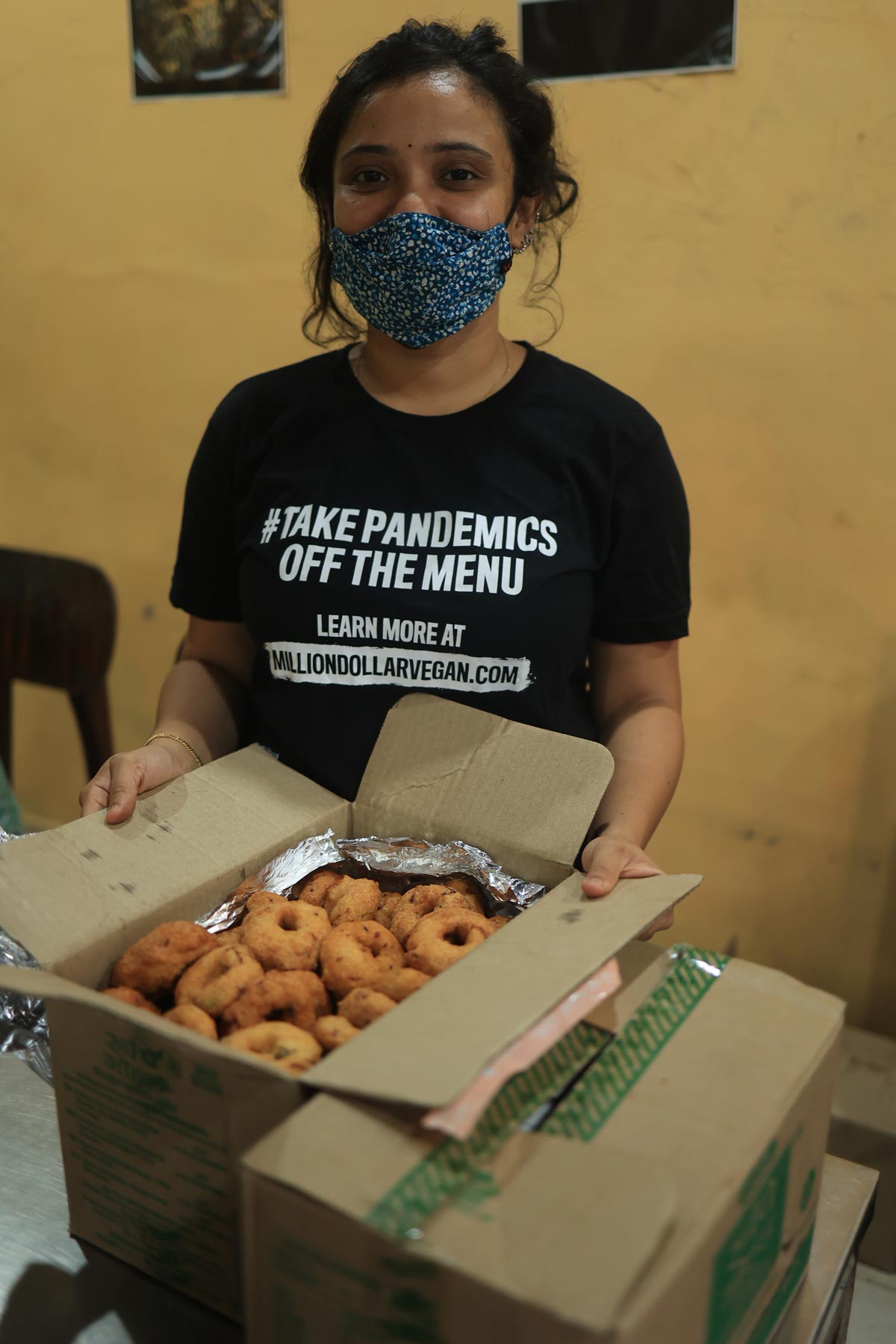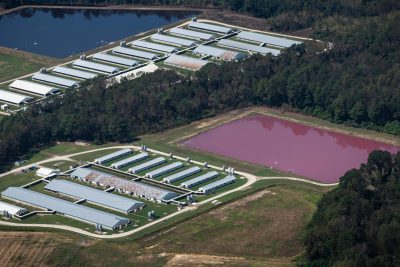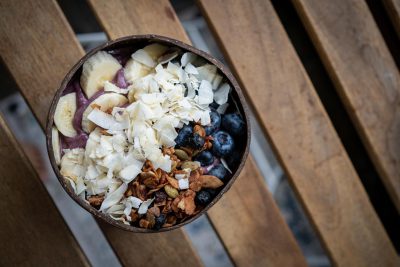This month was a little quieter than usual as we prepare for an incredibly busy and exciting year, but of course we continued with our food solidarity work, including at three vegan Masaai schools in Kenya. This is a region that has lost much of its tourism and therefore, income due to the pandemic. More recently, it is experiencing the worst drought in decades, which is killing farmed animals and creating a humanitarian crisis. Our Kenya country manager and Masaai community leader, Jack Lekishon, is doing all he can to protect people, and we are proud to support him by providing 45,000 meals this month.
Fruits to Combat the Argentina Heatwave
Signs of climate breakdown are also in Argentina where several areas measured the hottest temperatures on record, reaching 45°C. Through our food solidarity initiatives we aim to support those most affected by the climate crisis, but also to expose the significant role that animal agriculture plays in driving climate breakdown.
This month, we continued our year-long collaboration with Arcoiris Soup Kitchen in Barrio Mugica in Capital Federal, Buenos Aires. Arcoiris is a community space in the heart of one of the most vulnerable neighborhoods in the city. It opens its doors every day to share food with children and adolescents, as well as to provide a place to promote integration, school support, and training.
Our team, coordinated by Jacqueline Guzmán, continues to bring plant-based options to the center, and – in the overwhelming heat – chose to prepare delicious fruit salads with agroecological ingredients. Each week, the team shares 25 kilos of bananas, apples, mangos, pears, peaches, and other seasonal fruits, which are prepared by the volunteers, and which form part of the 400 meals we were able to provide in January.
Jacqueline says the team in Argentina have ended the first month of 2022 full of commitment and desire to continue to work for social justice through veganism.
Showcasing Plant-Based Foods to Young People in India
This month, our team in India partnered with Hope Community Village, which offers long-term family care to children who have lost their parents or whose parents are unable to support them. The state of Kerala, where the village is based, is the largest consumer of beef in the country, which made this a great opportunity to showcase traditional dishes made with vegan beef instead.
Vinod Café Cherthala, run by Sneha Shenoi, created the most delicious Vegan Beef Fry with Parotta, Vegan Beef Biryani, and Vegan Kothu Porotta. While the children and adult workers at Hope Community Village also enjoyed a traditional Indian snack that is vegan by default and a tasty vegan drink.
Given that the production and consumption of cows is the leading dietary cause of climate breakdown, this is a wonderful way to show how we can make compassionate and climate-aware food choices with no loss of flavor or pleasure, and while staying true to our traditions. And it’s fair to say that the food was very well received!
Sneha told us: “Most people in Kerala are unaware about the concept of veganism or a plant-based diet. This is a great opportunity for me to introduce veganism and showcase how we can easily switch to plant-based options while not giving up on the tastes we are familiar with or love. I also hope that the residents of Hope Community Village will decide to make choices that will help reduce animal cruelty and help the environment. Moreover, Kerala is the diabetes capital of India, and I really hope that our efforts will help change that, too.”
Our other volunteers, Sudharsh, Mahesh, and Balaji were thrilled that they could actively participate in sharing the message of veganism in such a positive way. And this is just the beginning! We will not only be sharing delicious vegan food with the 80 residents at Hope Community Village once a week for eight weeks but will also be sharing with them the many different reasons why we need to prioritize plant-based foods. With some of the residents there having tested positive for Covid19 and in quarantine, there is no better time to include the role of animal agriculture in creating pandemics in the discussion.
